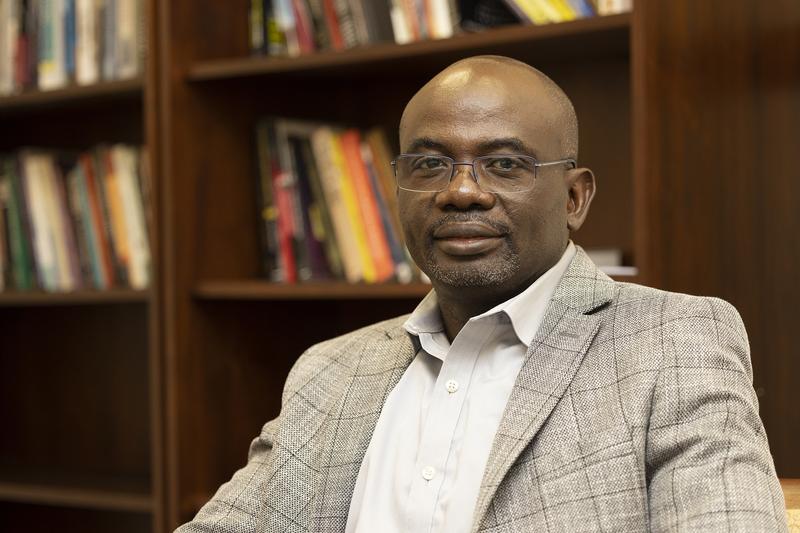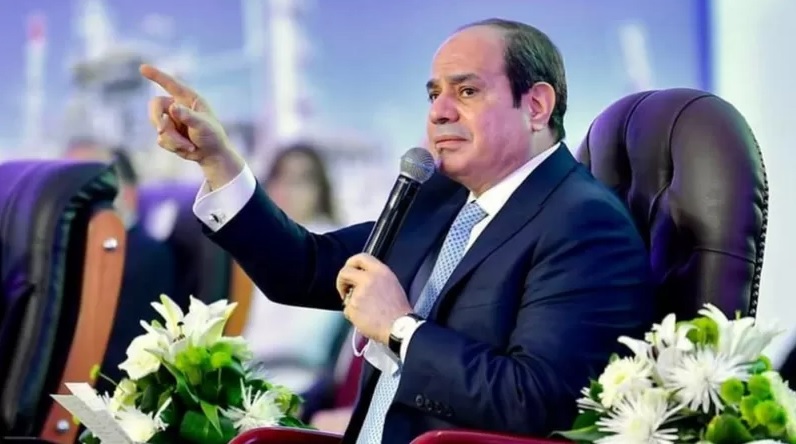Over 70 COVID-19 Cases and Six Deaths Among Egyptian Medical Staff: What is the Health Ministry’s Responsibility?

On 25 April 2020, sources in the Ministry of Health and Population (MoHP) revealed that the El Negelah Central Hospital in Marsa Matrouh, assigned to quarantine COVID-19 patients, had stopped admitting new cases because 22 of its medical staff had been infected.[1] This is not the first time in which cases among medical staff in Egyptian hospitals have been recorded. There have been numerous incidents of transmission to doctors and nurses in many hospitals, the most famous being the infection of 17 medical staff in the National Cancer Institute and the infection of the medical staff at Cairo University’s Kasr El Aini Teaching Hospital.[2] Per the preliminary tally conducted by the Egyptian Medical Syndicate, the number of COVID-19 cases among medical teams has risen to 70, including six deaths, and these numbers are expected to increase if the MoHP does not commit to applying medical instructions for preventing infection in all hospitals.[3] The WHO representative in Egypt stated that infections in the medical sector represent 13% of COVID-19 cases in Egypt, which is a large percentage that bodes catastrophe if the situation continues along the same course.[4] The deteriorating circumstances inside Egyptian hospitals most likely stem primarily from the MoHP’s mismanagement of the current crisis, on one hand, and the other state institutions’ neglect to work on improving the medical sector during this critical phase, on the other. Hence, this article sheds light on the MoHP’s strategies for dealing with medical staff, the first line of defense against the disease.
Arbitrary Policies Herald a Medical Disaster Across All Hospitals
As mentioned in the introduction, in less than two months, there have been multiple incidents of infection of medical staff in Egyptian hospitals. The most dangerous and most discussed in the media was the infection of 17 medical staff in Egypt’s first national institute for treating cancerous tumors, which raised fear of an outbreak among malignant tumor patients because of their weak immune systems. According to the testimonies of the infected, the main reason for this spread was “the obstinacy and refusal of the institute’s administration to administer COVID-19 tests to one of the nurses”, who caught the contagion from an infected child in the hospital.[5] This statement reflects the situation of all doctors working in hospitals during this period as the MoHP has failed to handle the current crisis in a manner that minimizes losses among its ranks because of the severe shortage of preventative medical supplies, such as disinfectants and antiviral masks, in all government facilities. Additionally, the hospitals’ administration has refused to comply with WHO recommendations to administer PCR tests to all medical staff before they leave their hospitals and resume public life, arguing that the test is too expensive. The hospitals swab only those showing symptoms, which conflicts with the WHO’s recommendations emphasizing intensive testing as an effective means of tracing the infection and thereby curbing its spread.[6]
Doctors have repeatedly called upon the MoHP via social media and their syndicate’s online platform to establish, based on international standards, a health protocol to protect them for adoption in all Egyptian hospitals. They have also implored it to overcome the shortage of essential medical resources for preventing the disease and limiting infection among medical staff. However, the MoHP has totally ignored these calls and denied the rumors doctors are repeating about supply shortages in government hospitals and a lack of necessary preventative measures in hospitals.[7] It has also taken severe, incomprehensible and unjustified arbitrary measures against doctors and the teams assisting them, measures that make it difficult for them to properly perform their tasks. For example, after an outbreak within one hospital, the General Healthcare Authority issued Periodic Memo no. 1 of 2020 addressing the measures that must be applied in hospitals to curb the virus’ spread among staff.[8] The memo divided monthly work in the hospitals into rotations whereby each group of medical staff works for two continuous weeks and then self-isolates for another two weeks.[9] The Egyptian Medical Syndicate criticized this as an inhumane measure that ignores doctors’ family life and endangers their lives because humane lodgings to host them inside the hospital throughout this continuous period had not been prepared.
The memo also stipulated disciplinary procedures against any doctors or nurses infected with the virus because they hamper workflow and are assumed to have violated preventative instructions. This is an extremely bad policy as it makes no sense to punish citizens for catching the illness, especially if they are doctors waging a battle to protect citizens’ public health and are therefore more susceptible to infection than others. Complementing the policies of harassing doctors, the Directorate of Health in Sharqia Governorate referred a doctor for investigation after he posted on social media a video in which he complained about a severe shortage of preventative supplies, particularly masks for handling suspected cases.[10] The Egyptian Medical Syndicate considered this move an illegal measure aimed at covering up the poor sanitary conditions in government hospitals and silencing doctors.[11] In reality, the MoHP’s arbitrary policies toward doctors raise questions about whether medical staff are a priority for the Egyptian state bodies, especially given the president’s assertion that there are large financial surpluses in reserve without clarifying its source.[12]
Financial Resources and the Egyptian Health Sector
None of the Egyptian state’s policies during the current period have mentioned the situation of the health system and doctors among their priorities. Although the president has stressed the strength of the Egyptian state and its total readiness for all COVID-19 crisis scenarios and has constantly thanked medical staff,[13] the applicatory steps taken on the ground remain extremely feeble and contradictory. For example, the government sent medical supplies to other countries amidst Egyptian hospitals’ critical shortage of such supplies, which was a key cause of the infection of numerous doctors and medical staff.[14] Moreover, on the domestic level, the Egyptian state is prioritizing administering COVID-19 PCR tests to members of the judicial bodies and sovereign and vital institutions to ensure they are healthy despite the essential need for this test among doctors, especially those who have come in contact with COVID-19 cases, and the hospitals’ have obstinately refused to examine them because they manifest no symptoms.[15]
This grave neglect of doctors and the health sector in Egypt is not a product of the moment but the result of an accumulation of policies of marginalization that the current crisis has exposed. The weakness in Egyptian hospitals’ capacities and repeated infections among medical staff are the natural result of policies that reduce the state budget’s allocations to the health sector in order to increase spending on other sectors, such as national security, defense, the judicial system, and oversight bodies.[16] According to several reports, government expenditure on the health sector during the current financial year totals 2.24% of the GDP,[17] which is less than the constitutional minimum of 3%.[18] This directly impacts the services provided to citizens. It also impacts the health system and the doctors’ circumstances within this dismantled system. For example, doctors receive infection risk pay of EGP19 (less than US$2), whereas judiciary members receive EGP3,000 (approx. US$190) for the same allowance. This discrepancy reflects disregard toward doctors, who are at risk of infection from any disease every day. It also clearly shows that the health sector is not among the Egyptian state’s priorities, which leads to a poor distribution of financial resources.[19] In an attempt to appease doctors and nurses, the president increased their infection risk pay to a meager EGP1,200 per doctor and EGP700 per nurse (approx. less than US$50-80 per month) and disbursed an exceptional bonus from the Long Live Egypt Fund to workers in quarantine, chest, and fever hospitals and central laboratories, according to a statement by the spokesperson of the President’s Office.[20] Meanwhile, the Egyptian Medical Syndicate has adopted more logical measures within the bounds of its financial capacity, disbursing EGP100,000 [approx. $US6,430] for each COVID-19 death among its members and EGP20,000 [approx. $US1,290] for each infection. It is also striving hard to have infected and deceased medical staff added to the beneficiaries of the Fund for Honoring the Wounded and Martyrs, established by Law no. 18 of 2018.
Conclusion
The COVID-19 crisis has confronted the political authority in Egypt with only one option, namely developing the decrepit health sector, providing protection for doctors, and raising the public hospitals’ capacity by preparing more intensive care units and respirators, so that we can all overcome the crisis at the lowest cost in citizens’ lives. Yet disappointingly, the state’s current priorities are saving the economy and restarting the gears of production, which satisfies the businessmen and investors who have rejected the business interruption and refused to compensate their employees as they wait for conditions to improve.
This article is an edited translation from Arabic.
Keywords: Egypt, COVID-19, Medical staff, Health sector
[1] “Isabat 22 min al-Taqim al-Tibbiyy bi-Mustashfa al-Najila bi-Virus Corona wa-l-Mustashfa Tatawaqqafu ‘an Istiqbal Musabin Judud”, Egypt Fans, 25 April 2020.
[2] “After Doctors Blame Administration for COVID-19 Clusters at Hospitals, Health Ministry Circulates New Procedures in Internal Memo”, Mada Masr, 21 April 2020.
[3] See the Egyptian Medical Syndicate’s statements tallying the infected and deceased among its members.
[4] Nur Rashwan, “Mumaththil al-Sihha al-'Alamiyya: 13% min Isabat Corona bi-Misr min al-Qita' al-Tibbiyy”, Shorouk News, 13 April 2020.
[5] Rana Mamdouh, “Khatt Sayr Corona Dakhila Ma'had al-Awram: Shahadat 4 Mumarridin Musabin”, Mada Masr, 5 April 2020.
[6] Jessica Hamzelou, “WHO Expert: We Need More Testing to Beat Coronavirus”, New Scientist, 16 March 2020.
[7] Hind Mukhtar, “al-Sihha Tufannidu 4 Sha'i'at bi-Sha'n Corona Abrazuha Ghiyab al-Ijra'at al-Wiqa'iyya Dakhila al-Mustashfayat”, Youm7, 7 February 2020.
[8] Ashraf 'Abd al-Hamid, “Ghadab Attiba' fi Misr.. Wizarat al-Sihha Tatajahalu Himayatana”, Al Arabiya, 22 April 2020.
[9] “After Doctors Blame Administration”, ibid.
[10] Muhammad Fathi, “Ba'da Shakwahu min Naqs al-Mustalzamat… al-Attiba': al-Tahqiq ma'a Tabibi al-Sharqiyya Ghayr Qanuniyy”, Shorouk News, 9 April 2020.
[11] Ibid.
[12] Ahmed Hamed Diab, “al-Sisi: 'Indana Ihtiyatat 'ala Janb, wa-Law Ihtajnaha ha-Ntalla'ha”, Al Watan, 7 April 2020.
[13] Muhammad al-Jali, “al-Sisi 'an Muwajahat Azmat al-Corona: Misr Qawwiyya wa-Musta'iddun li-Kull al-Sinariyuhat”, Youm7, 7 April 2020.
[14] Noha El Tawil, “Egypt Sends Italy Medical Aid Amid COVID-19 Spread”, Egypt Today, 4 April 2020.
[15] “al-Sihha Tujri Fahs Corona li-l-Mustasharin bi-Wizarat al-'Adl”, Al Watan, 12 April 2020.
[16] Muhammad 'Abd Allah, “Wasata Tajahul Hukumiyy Attiba' Misr Yuwajihun Corona bi-Badal 'Adwa 19 Junayhat”, Al Jazeera, 28 March 2020.
[17] Muhammad Ahmad 'Abbas, “al-Infaq ‘ala al-Sihha fi al-Nuzum al-Misriyya”, Egyptian Institute for Studies, 22 October 2019.
[18] Article 18 of the 2014 Egyptian Constitution stipulates that “the state shall commit to allocating to health a portion of government expenditure no less than 3% of the GDP. The percentage shall gradually increase until it is in line with global rates”.
[19] “Ghadab Attiba' fi Misr”, ibid.
[20] Wisam 'Abd al-'Alim, “al-Ra'is al-Sisi Yuwajjihu bi-Sarf Mukafa'at Istithna'iyya li-l-'Amilin Haliyyan bi-Mustashfayat al-'Azl wa-l-Hummayat”, Al-Ahram, 29 March 2020.



